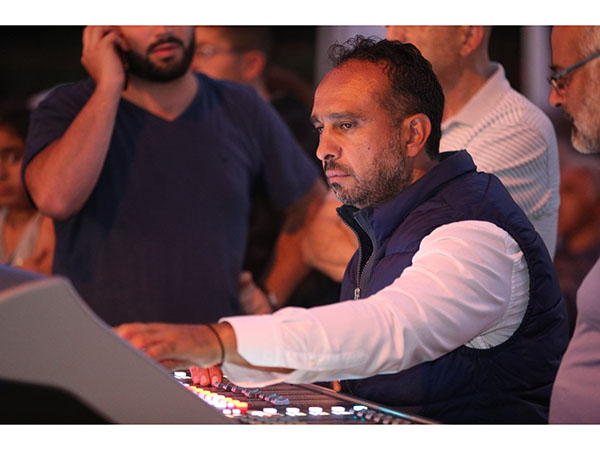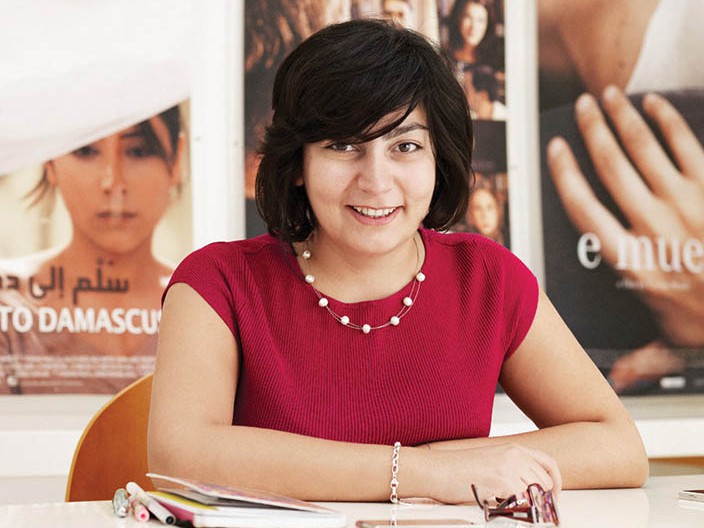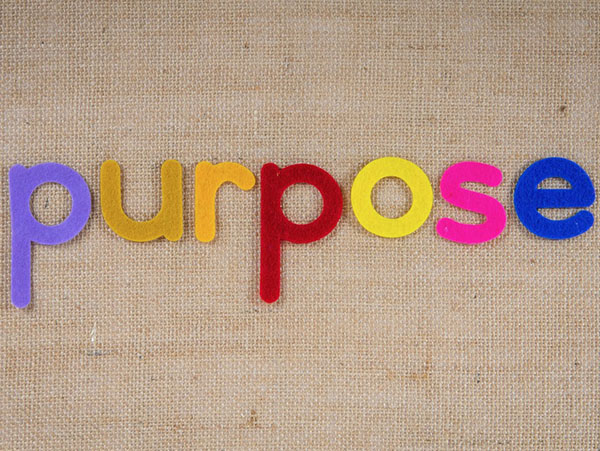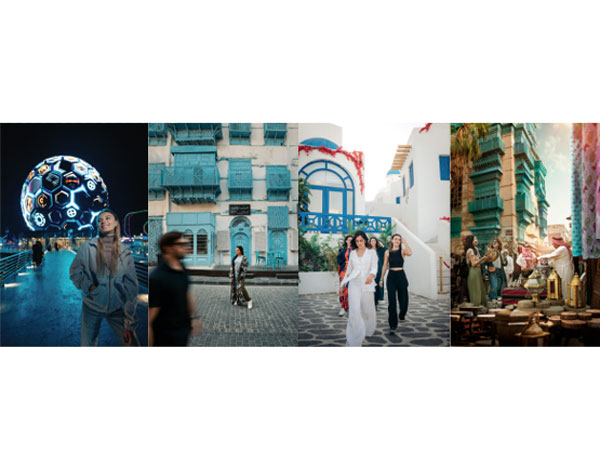Industry Talk
Blue Sound or the love of sound engineering – an interview with Chadi Saad
by Ghada Azzi
October 4, 2021
.jpg) Advertisement
AdvertisementBlue Sound is an expert of high-end sound equipment and engineering in Lebanon. Founded by Chadi Saad to cater to a demanding spectrum of clients in Lebanon and the region, Blue Sound provides capable engineering and sound skills provided by a high-qualified team of experts working in the field for more than 10 years. The company is backed by the best upmarket sound technologies after acquiring L-Acoustics systems and its sole franchise. It has so far bagged a wide portfolio of projects that comprises the most attractive festivals, events and concerts conducted in Lebanon and the region and have worked alongside major international artists, most notably Andrea Bocelli, Yanni, Hélène Ségara, and Star 80, among others.
ArabAd talked to Chadi Saad to learn further about his company and what it takes to become a reference in sound engineering.
Tell us a bit about yourself…What made you choose such an offbeat, unconventional and fascinating career?
At a very young age, I started to discover a particular passion for music and sound, so I studied piano, and my journey in this field kicked off by developing this talent in the love for instruments, where I joined the Lebanese National Higher Conservatory of music; there I entered the world of kanoon. After that, I founded along with my friends, a small musical band that continued to develop and attract new talents yet my interests expanded into audio visual and cinema; there I decided to make my move into this specific industry because it reflects my original ambition and passion, while presenting a big potential in this country and the region.
How did you get your first break?
My first break came when I met Farid Abou El Kheir, who used to cooperate with all the major artists during that golden age like Rahbani brothers, Fairuz, Nasri Chamseldine, Wadih Al Safi,… and discovered my talent. Abou El Kheir taught me the art of listening then the technique of mixing.
After graduating from college, I began my career working in the “High- Fidelity audio systems”, and I learned a lot about this industry when I worked for one of the biggest sound engineering companies in Lebanon.
What have been some of the highlights in your career?
In 2001, I had the honour to work with the St. Petersburg philharmonic orchestra which represented for me a big challenge as I had to perform and mix before a huge crowd.
My dream came into fruition when we created my own company Blue Sound in 2014 that specializes in providing sound solution, sound operating services, sound equipment supply and backline/ musical instruments supply. Blue Sound has three divisions that comprise of Blue Sound Pro, Blue engineering and Blue instruments.
What levels of education are required to work in the field?
Working in this field requires very specific technical skills in addition to that, sound engineers require to have electrical engineering degree and most importantly a deep know-how in music and instruments.
What are the major qualities required to be a good sound engineer in your opinion?
Our work requires a lot of coordination efforts, so we have to communicate very efficiently with the conductor, music producer, artists... The whole collaboration and preparation process is aimed at producing the best results. Success in this field also requires from a sound engineer to correctly assemble, operate and maintain the technical equipment on a regular basis, as well as recording, amplifying, enhancing mixing and reproducing sound, and to possess the competitive edge in this industry, the sound engineer must always follow the latest trends and technologies in order to present the best quality sounds to his/her audience.
What advice would you give to someone who wants to pursue a career in sound engineering?
Personally, I would advise people who would like to pursue a career in sound engineering to really have a passion for music and work harder to develop their skills and in addition to that, it is important to have an eye for details, as our job requires a lot of attention to this kind of small elements.
The pandemic crisis had a catastrophic impact on the whole field, but it was very challenging for online mixing and live streaming, and ultimately this is the future of this business.
What have been the key technological milestones you’ve witnessed in your time in audio and how have they changed what you do/how you work?
The transition from the analog world to the digital was the quantum leap that we had the chance to witness. But now, we are stuck in the commercial world and the sound requirements of the consumers have changed accordingly, and everything now is dependent of the small devices such as mobiles and laptops. It is a whole new culture.
During a live performance, there are many parameters involved to make a great concert (venue display, PA system, volume restriction, indoor/outdoor, etc). We often read or hear “the band is good usually but tonight the sound was crap”. How do you deal with all these factors and what do you find challenging?
I believe that all of the mentioned elements influence the quality of the sound. The challenge is how to make good use of the technology in hand and the company’s know-how to bring the best outcomes during the function.
For the gear geek out there, any specific consoles/brands you personally like working with and why?
For the gear geek, I would say that the SSL desk is my preferred mixing platform that provides the ultimate quality of sound and most importantly for me as a sound engineer, the ease of mixing and performance. This desk was my first choice since 2014, and we are still using it till date.
The pandemic has surely affected your business… How are you addressing the new challenges ahead?
Actually, the pandemic crisis had a catastrophic impact on the whole field, but it was very challenging for online mixing and live streaming, and ultimately this is the future of this business.
What are your plans for 2021?
Regarding our plans for the coming period, we are in a sustainability mode since we are the last sector in the world which will get back to its normal status since it requires and rely on the physical presence of the sound engineer. In parallel, we are compensating the loss of certain market segments in the country by investing and identifying new opportunities for equipment sales and rental in the gulf markets, and we are trying to cope and float until the crisis reaches its end.



.jpg)







